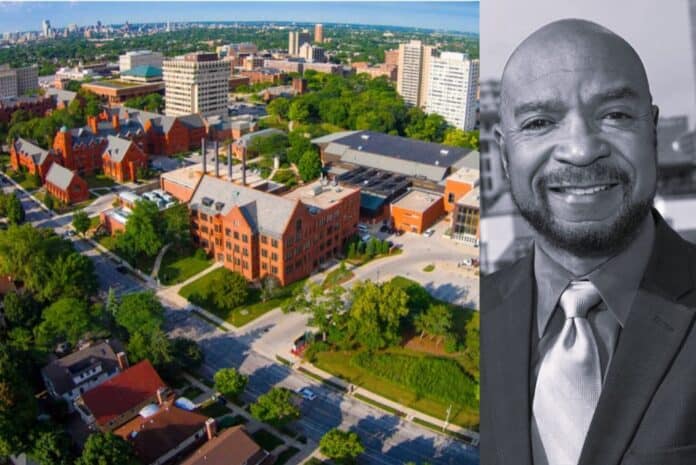I just hate government waste. Don’t you?
In an earlier column, I wrote about the fact the Evers Administration has not required many state employees to report to work at the office buildings to which they are assigned. Thousands of state employees continue to work remotely, leaving much of the 2.5 million square feet of state office buildings largely empty. Instead of selling the properties or terminating leases, Wisconsin taxpayers are still stuck paying for maintenance, utilities, and insurance for these unnecessary buildings.
If you followed me during my 2022 campaign for Lieutenant Governor or the years since then, you know I am passionate about the government sticking taxpayers with costs they need not bear. This includes the cost of empty buildings that could easily be sold and put back on the tax rolls. So, I am sounding the alarm yet again about another example of Wisconsinites left holding the bill for more largely unused properties.
The University of Wisconsin System & The Building Boom
The University of Wisconsin System is comprised of 13 universities across the state and a systemwide administration. You may have read about, or seen video of, Governor Evers signing legislation with a great deal of fanfare on March 6, 2024, to provide the University of Wisconsin System with nearly $700 million in facilities-related funding.
These projects may well be needed and in the best interest of the people of Wisconsin. One hopes there was much deliberation in developing the proposals to fund this UW building boom. Shouldn’t the UW System and state government work just as hard to identify ways to reduce other facilities costs within the system, so taxpayers…and students paying tuition…can get a break?
UW Empty Office Buildings
Over 21,000 people collectively work for UW System’s Administration and universities. Nearly 60% of the more than 21,000 employees work for UW-Madison itself.
In December 2023, months before Governor Evers signed legislation granting the UW System nearly $700 million in new facilities-related funding, the Wisconsin Legislative Audit Bureau (LAB) issued a report indicating that, as is the case with state government, many employees across the UW System’s administrative offices and 13 universities are no longer required to report to work at assigned offices. As a result, like state government, the UW System has a significant amount of largely empty office space.
While many private-sector businesses have reduced office space and related expenses in order to address new economic realities and be competitive in today’s market, neither state government, nor the UW System, has risen to the occasion.
The Legislative Audit Bureau, the Wisconsin Legislature’s investigative arm, analyzed UW System Administration’s employee keycard usage during the period of January 1, 2023, to June 2, 2023. Keycards are issued to employees often in order to access work areas in certain office buildings. The LAB report found that employees assigned to work at the UW System’s Administration offices only used a keycard to access work areas an average of 1.5 days per week.
As a secondary measure, LAB also sent audit professionals to UW System-related office buildings to see for themselves how many workstations were being used by employees. LAB staff visited UW System Administration offices a total of six times in August 2023. Over the course of those six visits, LAB reported that 69% of all workstations reviewed remained unused.
The University of Iowa, Ohio State University, and Purdue University are all examples of Midwestern public higher education institutions that have analyzed their office space needs in the post-COVID-19 period and published plans to right-size appropriately. The University of Wisconsin System, as yet, does not have a comprehensive office space needs analysis or plan to right-size its facilities.
According to LAB’s report, 10 of the UW System’s 13 universities had not assessed in writing the square footage of office space they need to operate effectively. Additionally, 77% of UW System universities had not consolidated office space at any point from 2021 to 2023.
Living Up to The Wisconsin Idea
The University of Wisconsin System, from its flagship of UW-Madison to its sister campuses across the state, provides a number of benefits to the people of Wisconsin. This is as it should be for any publicly funded higher education system. For well over a century, the UW System has been called upon to live up to The Wisconsin Idea—the concept that our public universities should do more than educate, they should apply their knowledge and resources to help Wisconsin’s people, businesses, communities, economy and government thrive.
While the University of Wisconsin System does many great things, its record as a public entity in reducing government waste leaves buildings worth of room for improvement. The people and businesses of Wisconsin have paid enough.
It is time for the UW System Administration and 13 universities to follow the lead of the private sector and other public universities in:
- Conducting immediate office space assessments,
- Consolidating space in 2024, and
- Working with state government to sell, or terminate leases for, unneeded properties as quickly as practical.
Table of Contents











![WATCH: Elon Musk Town Hall Rally in Green Bay [FULL Video]](https://www.wisconsinrightnow.com/wp-content/uploads/2022/04/Elon_Musk_3018710552-356x220.jpg)



![The Wisconsin DOJ’s ‘Unlawful’ Lawman [WRN Voices] josh kaul](https://www.wisconsinrightnow.com/wp-content/uploads/2025/03/MixCollage-29-Mar-2025-08-48-PM-2468-356x220.jpg)







![Phil Gramm’s Letter to Wall Street Journal [Up Against the Wall]](https://www.wisconsinrightnow.com/wp-content/uploads/2025/03/gramm-356x220.png)











